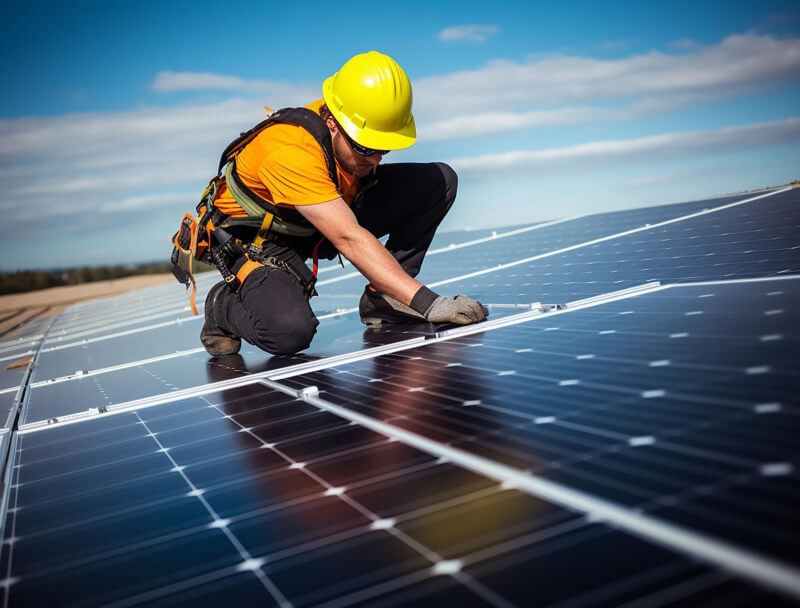Technical Queries FAQs
No, a typical rooftop solar system does not generate electricity at night because solar panels need sunlight to produce power.
However:
- During the day, the system may generate excess energy, which is sent to the grid (if you have net metering).
- At night, you draw power from the grid as usual.
- If your system includes battery storage (hybrid/off-grid), you can use the stored energy at night.
It depends on the type of system:
| System Type | Works During Power Cut? | Notes |
|---|---|---|
| On-grid | No | Shuts down for safety during grid failure |
| Off-grid | Yes | Uses batteries, not connected to grid |
| Hybrid | Yes | Switches between solar, grid, and battery |
To protect utility workers who might be repairing the grid. This is known as “anti-islanding protection”.
Solar systems are low-maintenance, but a few simple actions help maintain optimal performance:
Routine Maintenance:
- • Panel Cleaning: Every 15–30 days depending on dust, pollution, and bird droppings.
- • Visual Inspection: Check for any loose wires, corrosion, or shade from new structures or trees.
Annual Maintenance:
- • Electrical checks for inverter and wiring
- • Monitoring system performance
- • Re-tightening bolts and connections
Pro Tip:
Use soft water and a non-abrasive cloth for cleaning. Avoid pressure washers.
Our system comes with a remote monitoring platform (mobile app or web dashboard) that allows you to:
Track daily/weekly/monthly energy generation
- • Monitor real-time power output
- • Get alerts on underperformance or faults
- • Check grid export/import statistics (for net-metered systems)
This helps in:
- • Spotting performance drops early
- • Optimizing energy usage
- • Comparing expected vs. actual generation
Yes, rooftop solar systems are designed to endure tough environmental conditions:
- Rain: Panels are water-resistant; mounting structures are corrosion-resistant.
- Wind: Systems are engineered to withstand high wind loads (up to 100 km/h in many cases).
- Heat: Certified to operate efficiently in high temperatures (up to 85°C on panel surface).
However, extreme hail or cyclonic conditions might still pose a risk, so proper installation and site assessment are key.
Our solar panels have a warranty of 25 years with a product life of about 30 years. Inverters typically have a warranty of 8 years and a lifespan of 8–10 years. They can be replaced if needed.
If a panel or an inverter fails:
- • Do contact us.
- • If under warranty, replacements are usually free.
Yes, the solar system won’t directly power your AC or heavy pumps; it runs along with the grid system to provide you the required electricity at any point in time.
Ultimately, it offsets your total electricity bill, effectively covering the cost of using heavy loads over time.
